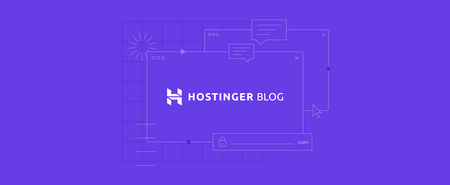State of the Word 2022: What WordPress Has Achieved and What’s in Store for the Future

WordPress held the annual State of the Word keynote address on December 15th, 2022. During the event, WordPress co-founder Matt Mullenweg addressed the progress of various WordPress project aspects and provided previews of what’s coming in the future years.
A group of contributors and developers attended State of the Word 2022, and it was also live-streamed with over 30 watch parties and 500 RSVPs across 11 countries.
This article will recap the event and let you know what WordPress has achieved in 2022 and the plans for the project.
State of the Word 2022 Video
In case you missed the live stream event, WordPress uploaded the State of the Word 2022 to its YouTube channel, and you can watch it here:
Four Freedoms of Open Source
Josepha Haden Chomphosy, the executive director of the WordPress project, began the event with the question, “Why WordPress?” She followed it up with a reminder of the four freedoms of open source:
- To run the program for any purpose.
- To study how the program works and change it to make it do what you wish.
- To redistribute copies.
- To distribute copies of your modified versions to others.
These freedoms, stated in the WordPress Bill of Rights, remove barriers and help secure a free, open, and interconnected web in the future. Josepha then mentioned that Matt Mullenweg taught her that open source is an idea that can change our generation.
2022 WordPress Recap
Matt Mullenweg then took the stage and started the keynote address. Here are the highlights for the 2022 recap.
Gutenberg Editor
As an editor tool for website and mobile application building using the block paradigm, Gutenberg has seen wide adaptation worldwide. Matt believes that Gutenberg will be bigger than WordPress itself.
In 2022, bbPress Forums, which powers WordPress.org forums, has embedded Gutenberg, so now you can add links and images in forums without using HTML-like language. This is done with the Blocks Everywhere plugin that will also be embedded in BuddyPress.

Other applications also have embedded Gutenberg. Here are a few examples:
- EngineAwesome, a Laravel-Based SaaS application.
- Pew Research Center’s Political Typology Quiz. One out of eight quizzes has been converted to blocks in 2022, with more than 1 million people completing it in 2022.
- The web version of Day One, an award-winning journaling app, uses Gutenberg.
The Gutenberg project also concluded the licensing of Gutenberg Mobile. Matt explained that Gutenberg has always been GPL-licensed, but people couldn’t just include Gutenberg in a mobile app due to how mobile apps are distributed.
Mobile Gutenberg now has dual licenses, so you can use it under GPL or MPL (Mozilla Public License) and easily embed it in mobile applications.
WordPress Community Events
Since the beginning of the Covid pandemic in 2020, many community events, such as meetups, have switched to online. In 2022, we saw many online gatherings return to the in-person meetup style.
Matt explained that 500 meetup groups doubled their events in 2022. WordCamps are also increasing in number – from only one WordCamp in 2021 to 22 WordCamps in 2022. So far, 34 WordCamps are already planned for 2023, and the number will most likely increase.

Learn WordPress
WordPress hosts the Learn WordPress website. It contains courses and community workshops for people who want to learn WordPress. In 2022, there were 12,000 people who took one of these courses.
Matt said the course activities were happening almost every week and were moderated or facilitated by volunteers.
Website Redesign
The WordPress.org website was redesigned in 2022, including its homepage and blog areas. The new design follows the jazz design paradigm, and Matt hopes that this “neo-jazz meets software” aesthetic will become a new design language on its own.

Another new addition to the WordPress.org website is the Showcase section, which features famous websites that are powered by WordPress.

Openverse
WordPress acquired Openverse from the Creative Commons organization in 2021 and has since launched it on the WordPress.org website. It’s a search engine that scours the web for Creative Commons-licensed media, such as images and videos.

In 2022, audio media will be introduced into the Openverse, allowing podcasters and music creators to share their works with the world.
Matt continued with the following Openverse stats:
- 22 million images.
- 1.1 million audio files.
- Millions of users per month.
- Over 59 million requests made in the past 30 days.
Photos uploaded to the WordPress photo directory will also be available in the Openverse.
Three Major Updates
WordPress launched three major updates in 2022 with new design tools to customize a website’s entire front-end. What’s more, users no longer need to know as much PHP and CSS as before.
Matt highlighted the top three aspects that shipped with the updates in 2022:
- Block themes. WordPress themes are moving from a bundle of PHP and CSS to blocks, allowing users to create themes or customize websites in the Gutenberg Editor without dealing with code.
- Styles and style variations. Themes are usually a collection of colors, fonts, and spacing that people can customize with the Gutenberg Editor. The styles and the variations thereof provide alternatives to these components with the same underlying structure.
- Twenty Twenty-Three theme. Unlike its predecessors, the Twenty-Twenty-Three default theme comes as a black canvas, with ten style variations designed by WordPress community contributors.

Gutenberg Phase Two Wrap-Up
WordPress introduced Gutenberg four years ago, and the project is divided into four phases:
- Easier Editing. Replacing the post and page editor with the Gutenberg block tools. Already available in WordPress, with ongoing improvements.
- Customization. Using the Gutenberg design tools to customize headers and footers and create an entire website with blocks. This phase includes full site editing, block patterns, block directory, and block-based themes.
- Collaboration. A more intuitive way to collaborate during WordPress core content creation.
- Multilingual. Core implementation for multilingual sites
We are in phase two of Gutenberg with the latest WordPress 6.1 release. At this point, creating a theme from a blank canvas is possible just by using the Gutenberg editor on the front-end. The upcoming WordPress 6.2, expected to arrive on March 2023, will mark its end.
This is possible using the Create Block Theme plugin that allows importing Google Fonts into the theme and serving them locally from the site. Matt said that with this system, we could have “one theme, one pattern, infinite permutations,” implying the endless customization possibilities with block-based editing.
A Record Number of Release Contributors
A record number of 1,399 contributors made all the updates and new features possible. Check out the following contribution stats:
- 652 first-time contributors.
- 204 contributors participated in all 2022 releases.
- 424 contributors from 2021 returned in 2022.
- 322 contributors who took a break in 2021 returned in 2022.
Matt also introduced and recognized four new core committers in 2022 – Bernie Reiter, Marius Jensen, Adam Zielinski, and George Mamadashvili.
Plugin and Theme Taxonomy
Starting in December 2022, WordPress is launching a new taxonomy for the plugin and theme directory. With over 50,000 plugins and 10,000 themes, the new taxonomy should help users understand what kind of plugin or theme they’re getting. The new taxonomy also allows the creators to self-identify what kind of project their extensions are.

The feature is still a work in progress, but Matt mentioned four taxonomies:
- Solo or single-player. Solo developers develop extensions under this category for themselves but also release them for others.
- Community. These extensions belong to a community of developers with a lead dev stewarding the development. These extensions are then shared in the directory and passed to others. Community extensions also invite contributors to get involved in the WordPress community.
- Canonical plugins. The WordPress project considers a portion of community plugins important to the ecosystem. These plugins receive support from the core WordPress developers.
- Commercial. These extensions often have commercial support and are developed by companies. They also offer upsells, such as pro versions of the plugins.
What’s Coming In 2023
In addition to addressing the 2022 WordPress project progress, Matt also presented some plans for 2023.
WordPress 20th Anniversary
WordPress will turn 20 in May 2023. Matt mentioned that few software projects make it to such an age and that WordPress shares the same birthyear as Creative Commons.
There will be celebrations for the anniversary – you can follow the updates on the WordPress 20th anniversary website.

WordPress Community Summit
WordPress Community Summit is an event where top contributors gather. After a six-year hiatus, the WordPress Community Summit will come back in 2023 and coincide with WordCamp US 2023.

Gutenberg Phase Three
Gutenberg phase three will start after the WordPress 6.2 release. The next generation of Gutenberg and WordPress will have a real-time collaboration feature that allows multiple people to work together on a post, page, or website. Matt explained that it would feel similar to working with Google Docs, where everyone can see what others are doing on the interface.
This feature will also allow people to invite others to collaborate in WordPress to edit posts, pages, or themes together. This way, users won’t need to use external tools like Google Docs, plus they’ll be able to benefit from using blocks in their collaborative workflow.
Post revisions will also receive a revamped interface during phase three, allowing people to edit revisions or check the post or page history.
Lastly, WordPress will improve the media library with the Openverse integration. This will allow people to download media from the Openverse directly via the WordPress media library, improving the editorial workflow.
WordPress Playground
Adam Zielinski developed a new sandbox called Playground. Normally, you need a web host or a local web server to use WordPress. The WordPress Playground, however, will work on web browsers using WebAssembly.

The sandbox is handy for testing themes or plugins or just trying a new design with the editor. The Playground already shows potential for the future. For example, you can use it as a staging environment to download and clone your WordPress site into your browser, make some edits, and then deploy the changes on your live website.
WordPress playground is still experimental and in active development, but you can visit the Playground page to test it or even participate in the project.
Conclusion
WordPress has progressed a lot in 2022, including core updates like broader Gutenberg integration and community changes like the reactivation of many worldwide events. The introduction of Full Site Editing, now known as Site Editor, is one of the biggest WordPress changes in 2022, and it has changed how people build websites with this content management system.
As we’re approaching the end of phase two of the Gutenberg project, we can expect another major milestone in 2023 – the introduction of real-time collaboration in WordPress. The new feature will improve our editorial workflow, making WordPress a better platform for creating content.



Comments
March 16 2023
I don’t know if it’s just me or if perhaps everyone else encountering issues with your site. It seems like some of the written text within your content are running off the screen. Can someone else please comment and let me know if this is happening to them too? This may be a issue with my browser because I’ve had this happen previously. Thank you
March 21 2023
Thank you for letting us know! We're aware of the issue and are working to fix it!